Welcome to Brand Breakdown, a series of comprehensive yet easy-to-digest guides to your favorite companies, with insights and information you won’t find on the average About page.
The Rolex Sea-Dweller is like the famous Submariner, only more so: it's beefed up, specced out and all-around badass. While the Submariner is a capable dive watch, it's so handsome and versatile that the vast majority of units sold will probably never get very wet. The Sea-Dweller, on the other hand, is resolutely made for extreme underwater use — it's the OG hardcore dive watch.
When the Sea-Dweller debuted in 1967 it existed within the Submariner line. It was rated to go significantly deeper (610m) than the existing Submariner (200m water-resistant at the time) and it incorporated a helium escape valve — a feature created specifically for professional divers living underwater (or in pressurized environments) for extended periods. It was among the earliest watches to offer this niche feature, along with watches from brands like Doxa.
Though it offered generally badass appeal even to the casual consumer, the Sea-Dweller was developed for specific technical use. Various organizations at the time of its creation were experimenting with saturation diving, and watches were among the necessary equipment for that dangerous pursuit. The problem that the Sea-Dweller aimed to solve was that helium in the pressurized environment divers lived in would enter the watch and then pop the crystal off when decompression caused the molecules to expand. Rolex patented the valve designed to expel the gas, and this feature (along with an extreme depth rating) differentiates the Sea-Dweller from its dive watch sibling, the Submariner.
Whether you're interested in collecting vintage Sea-Dwellers or just want the most solid modern Rolex dive watch you can get, you've come to the right place.
Rolex Sea-Dweller Collector Terms to Know
Single Red: The earliest prototypes had a single line of red "Sea-Dweller" text on the dial. They've become well known due to their rarity and resulting high auction prices.
Double Red: Also called DRSD for Double Red Sea-Dweller. The earliest production models had two lines of red dial text — they read: "Sea-Dweller" and "Submariner 2000" in reference to the watches' water-resistance rating of 2,000ft or 610m. They're not as unicorn-rare as Single Reds, but still tend to be very highly valued.
Mark Dials: Specifically, they are Mark 0 through 7, and they chronologically denote differences in Sea-Dweller dial variations. The lower numbers are older and typically more valued. Those designated 0 through 4 are original dials, whereas 5 through 7 are Rolex replacement dials.
Rail Dial: Now, look closer. Look at the two lines of text "Superlative Chronometer" and, below it, "Officially Certified." Are the letter Cs of "Chronometer" and "Certified" aligned? If so, you've got a Mark 2 and a "Rail Dial," which carries a premium. Why? Produced for a short time by the Stern Company, Rail Dials deviate from the typical configuration and are rare.
Triple Six: Another name for the reference 16660 (discussed further below).
Patent-Pending: In the context of Rolex Sea-Dwellers, this refers to certain early models that were introduced before Rolex's helium escape valve patent was approved, and "patent pending" is denoted on the case back. It's another feature that adds value for vintage Rolex collectors. (Models made after approval say "Rolex Patent.")
Great White: The reference 1665 produced from 1977 to 1983 is called the Great White because its white text replaced red. (Also, it's a dive watch so, ya know, the shark reference kinda fits.)
Comex: The French company Comex (Compagnie Maritime d'Expertises) was one of the players that pioneered saturation diving, and they commissioned watches from Rolex. Sea-Dwellers that feature the Comex logo on the dial are now so rare that they're probably too valuable to be worn. These dials are found on references 1665 (Great White), 16660 and 16600.
Gas Escape Valve: A valve which allows helium molecules in a watch case to be vented during decompressing from the pressurized environment used in saturation diving. Also called a "helium escape valve" or "HEV."
A Sea-Dweller Timeline
1967-1977: Ref. 1665 "Double Red"
The first Sea-Dwellers were produced in 1967, but not available to the public until 1971. They had the same look and 40mm case of the Submariner but with greater water resistance and the signature gas escape valve. The valve on the side of the case, the text on the dial and the lack of a magnifier lens (cyclops) over the date display would've been the primary ways to visually distinguish the Sea-Dweller from a Submariner of the time.
Diameter: 40mm
Water Resistance: 610m
Movement: Rolex 1575 automatic
Price: ~$40,000-$90,000
1977-1983: Ref. 1665 "Great White"
The "Great White" marks the Sea-Dweller losing its Submariner branding on the dial and in some sense becoming a distinct line. Other than that, the primary difference between the Double Red and Great White, as their nicknames indicate, is the dial text color — they share the same reference number, after all, so the basic specs and features are expectedly close. For some collectors, however, the difference is significant. A standard Great White might be less valuable than a standard Double Red, but this is where you'll begin to find rarified variations that collectors covet like "rail dials" and "Comex dials."
Diameter: 40mm
Water Resistance: 610m
Movement: Rolex 1575 automatic
Price: ~$18,000-$39,000
1978-1989: Ref. 16660 "Triple Six"
Some consider 1978 to mark the line between "vintage" and "modern" Sea-Dwellers. With the new reference number, the Sea-Dweller also doubled its water resistance, got a new movement and was one of the first Rolex watches to feature a sapphire crystal (replacing the previously used plexiglass). The new movement offered higher frequency and a quick-set feature for the date, and other small changes included a white date disk, as opposed to the outgoing silver one. The earlier Triple Six examples had the same matte-textured dial as their previous Sea-Dwellers, but later models got a glossy dial like modern Rolex watches, as well as white gold surrounds on the hour markers.
Diameter: 40mm
Water Resistance: 1,200m
Movement: Rolex 3035 automatic
Price: $10,000-$35,000
1989-2009: Ref. 16600
The 16600 got an updated movement, but was remarkably similar to its predecessor. Over its 20-year production, it also got a couple upgrades to its dial luminescence: dials that say "T Swiss T" at the bottom use tritium, while a "Swiss dial" means it uses LumiNova, and "Swiss Made" indicates the use of modern Super-LumiNova. This Sea-Dweller was discontinued in 2009.
Diameter: 40mm
Water Resistance: 1,200m
Movement: Rolex 3135 automatic
Price: ~$9,000-20,000
2008-present: 116660 Deepsea
If the Sea-Dweller is like a souped-up Sub, then the Deepsea is a souped-up Sea-Dweller. The Deepsea upped the case to a beefy 44mm and its water resistance rating to an impressive 3,900m deep. Its lume is Chromalight, its bezel is now ceramic and its sapphire crystal is 5mm thick. Named in reference to the experimental Deep Sea Special watch Rolex made in 1960, this watch marks the Sea-Dweller evolving into a broader collection containing both standard Sea-Dwellers alongside Deepsea models.
There are four modern variations of the Sea-Dweller today, and two of them are Deepsea models. The first has a black dial, while a second model (released in 2014) has a gradient blue dial to commemorate the 2012 expedition in which James Cameron piloted a submersible craft called the Challenger Deepsea to the bottom of the Mariana Trench. Rolex had made a special prototype Deepsea watch that it strapped to the robotic arm outside the vessel to prove its water resistance. That watch was a whopping 51.4mm wide and 28.5mm thick, but it survived down to 10,908m.
Diameter: 44mm
Water Resistance: 3,900m
Movement: Rolex 3135 automatic
Price: $12,900+
Manufacturer Info: rolex.com
2014-2017: 116600
Though the Deepsea seemed to have replaced the standard Sea-Dweller for a few years, Rolex brought it back in 2014. It was familiar and consistent with the previous size, depth rating and movement, but now it featured a ceramic bezel. The 116600, however, wouldn't last long, perhaps because it was too similar an offering to the Submariner to stand out or justify its price premium to many buyers.
Diameter: 40mm
Water Resistance: 1,200m
Movement: Rolex 3135 automatic
Price: ~$13,300+
2017-present: 126600
The current Sea-Dweller is a bold 43mm wide and is offered in two variations: one in a traditional steel case and the other with a two-tone steel and yellow gold case (Rolex refers to mixed steel and gold watches as Rolesor). The inclusion of red "Sea-Dweller" text on the dial is a nod for collectors to the earliest models. It also breaks with 50 years of tradition by including a cyclops (magnifier) over the date window — which is a controversial element on any watch, but more so on a Rolex icon, of course.
Diameter: 43mm
Water Resistance: 1,200m
Movement: Rolex 3235 automatic
Price: $11,700+
Manufacturer Info: rolex.com
This content is created and maintained by a third party, and imported onto this page to help users provide their email addresses. You may be able to find more information about this and similar content at piano.io
The Link LonkFebruary 22, 2021 at 05:00PM
https://ift.tt/37CeMH4
Everything You Need to Know About Rolex’s Most Serious Dive Watch - gearpatrol.com
https://ift.tt/3gaCH26
Rolex
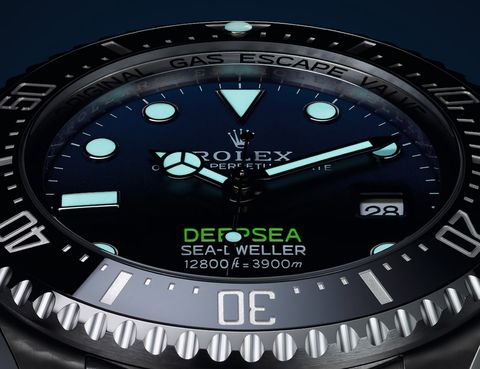


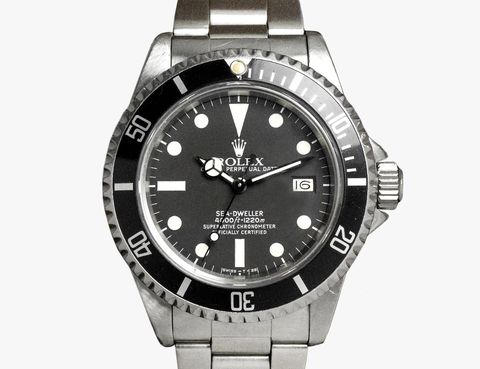
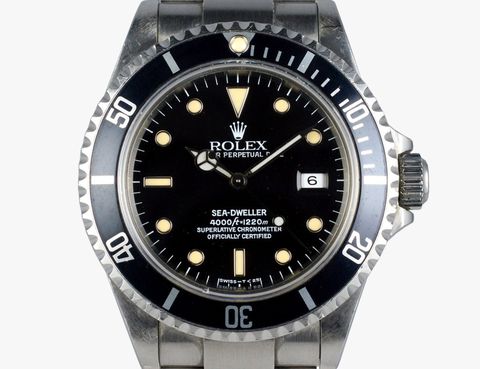

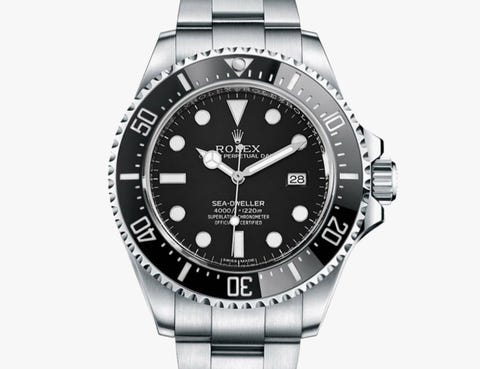
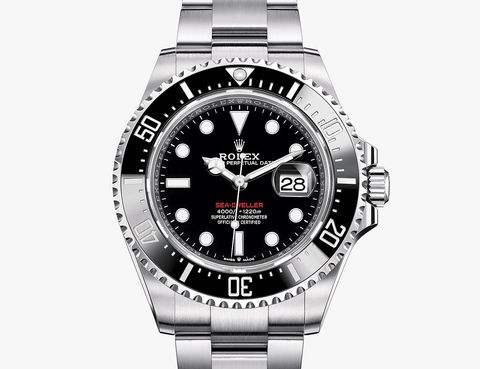
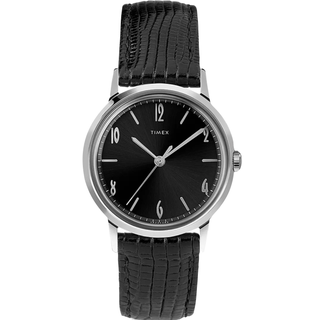






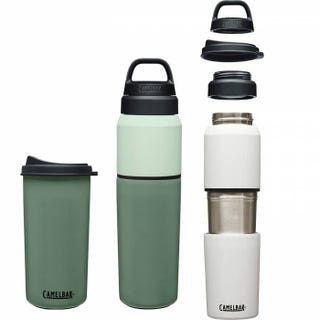




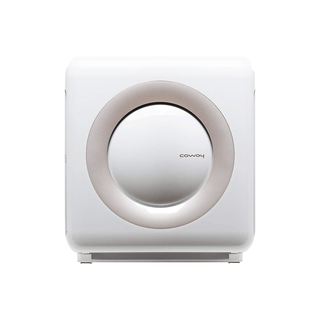



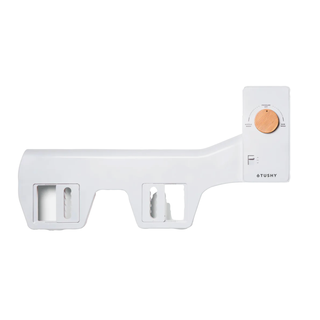
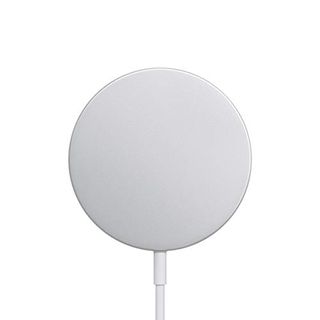

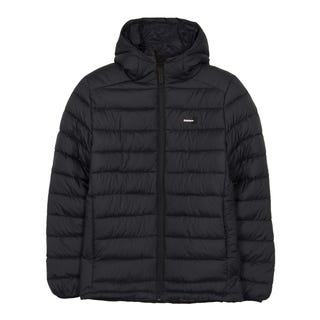
:no_upscale()/cdn.vox-cdn.com/uploads/chorus_asset/file/22689672/lil_baby_drake_rolex.jpg)
No comments:
Post a Comment